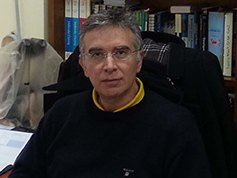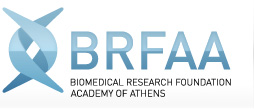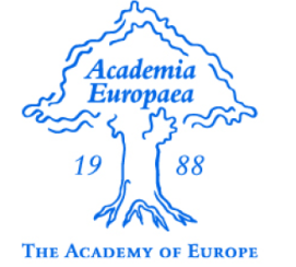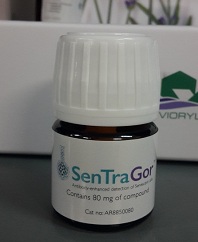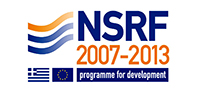Main topics
Current Research Activities
The main research efforts of the Molecular Carcinogenesis Group (MCG) are devoted to deciphering the molecular mechanisms and their deregulations that are responsible for the development of neoplastic disease.
Specifically, the MCG has long been involved in the investigation of mechanisms leading to deregulation of the cell cycle and emergence of genomic instability in cancer. In this frame, aberrations in the pRb/E2F, DNA damage response (DDR) and p53 pathways/networks have been the targets of intense research examination. By employing a dually linked approach, starting from observations obtained from clinical specimens and extending to functional recapitulations, the role and/or deregulations of components of the above pathways and networks are being investigated in relation to the outcome on the cell cycle (cell proliferation, apoptosis, senescence) and genome integrity.
A second research field that MCG has been involved in is the investigation of mechanisms responsible for arteriosclerosis-atherogenesis, since certain pathways/networks involved in neoplasia development as well as inflammation participate also in these non-malignant diseases. Particularly, the role of p53 in the senescence-associated ICAM-1 overexpression, in a NF-κB independent manner, was examined in atherosclerotic lesions. Also, studies on deregulations of pathways involved in the production of free radicals and NF-κB dependent signaling pathways have been performed in this pathological condition.
Finally, MCG has been working on inflammation and infectious agents in neoplastic and non-neoplastic disease. Regarding neoplastic diseases the contribution of infectious agents, like HPV and EBV, in the development of various malignant diseases has been investigated. Additionally, associations between mycobacteria and sarcoidosis development as well as the genetic background of patients with inflammatory bowel diseases have also been examined.
Apart from the research activities, MCG is an active member for the last three years in the European Society of Pathology by participating in the annually K-ras European Quality Assurance Program, related to the anti-EGFR therapy.
Major Achievements
Our group played a major role in:
i) Establishing the “Oncogene-induced DNA damage model for cancer development” (Science 2008; Nat Rev Mol Cell Biol 2010). Based on: Nature 2005; Nature 2006; J Pathol 2006; Cancer Res 2007; Oncogene 2008; Blood 2008; Am J Pathol 2009; Cancer Res 2012; Cell Death Differ 2014; Cell Mol Life Sci 2014; Cell Rep 2015; Nat Cell Biol 2016; and currently the broader role of DNA Damage response pathway in disease development (Cell 2016, in press)
ii) Demonstrating that oncogene-induced senescence is a DNA damage stress response acting as a barrier to cancer (Nature 2006; Cancer Res 2007; Am J Pathol 2009; Curr Opin Cell Biol 2010; Nature Genetics 2011; Nature Cell Biol 2011; Cell Death Differ 2015)
iii) Clarifying the functional interplay and the timeline of events underlying the two major antitumor checkpoint responses, i.e. DDR and ARF (Nat Cell Biol 2013; Cell Death Diff 2013; Cell Cycle 2014)
iv) Revealing the oncogenic role of replication licensing factors Cdc6 and Cdt1 by inducing DNA replication stress and deregulating transcription (Am J Path 2004; Nature 2006; Cancer Res 2007, J Cell Biol 2011; Transcription 2012; Semin Cancer Biol 2016; Nat Commun 2016; Nat Cell Biol 2016; PNAS 2016)
v) Contributing to our understanding of the role that inflammation plays in cancer development (Cancer Cell 2013; Cancer Cell 2014; Pharmacol Ther 2015; Cell Rep 2016)
vi) Understanding how cellular senescence and molecules/pathways involved in senescence contribute to organismal development, aging and diverse pathologies, including cancer (EMBO J 2003; Lab Invest 2005; Nature 2006; Am J Pathol 2009; Mech Ageing Dev 2016; Aging 2013; Aging Cell 2013; Stem Cells 2013; Cell Death Differ 2015; Mech Ageing Dev 2016). As available assays to detect senescent cells are unsatisfactory, particularly in vivo, a major aim is to develop new methods to detect with precision and sensitivity senescent cells (Aging 2013; Aging 2016).
|
|
|
Prof. Vassilis G. Gorgoulis
Laboratory of Histology-Embryology
Chair of Clinical Molecular Pathology, Ninewells Hospital and School of Medicine
University of Dundee, Dundee, UK
Biomedical Research Foundation of the Academy of Athens
Faculty Institute for Cancer Sciences, University of Manchester, Manchester Centre for Cellular Metabolism,
EMBO member
European Academy
Academia Europaea member
Intelligencia.ai, 180 Varick Street, 6th Floor, New York, NY 10014, USA
Office Tel: 0030 210-7462352 |
News
Error: No articles to display
